
Here’s another golden rule of trading you will never hear in the financial mainstream media: The less information the market yields, the more participants will attempt to fill the resulting vacuum with noise. Which is exactly why market makers love the summer slump as it’s high season for selling over priced OTM calls and puts to hapless retail traders.
The reason for that lies in basic human psychology, which goes back hundreds of thousands of years. We are used to controlling our environment and we do that by extracting basic clues upon which we form conclusions that leads us to taking appropriate action.
For example if there’s a bear in front of the cave, then it may be a good idea to grab a torch and make a lot of noise. If you’re lucky you and your family won’t end up as dinner.
Or if it’s getting too cold in that same cave then it may be time to look for more firewood, as to avoid freezing to death during the oncoming winter season. You get the basic idea.
Over time human beings developed sophisticated cognitive skills that we still use to make literally thousands of small decisions up to this very day.
The way we do that is to take recurring clues from our environment and use them to quickly derive at complex decisions.
Although this may sound a bit silly but there is a chain of complex conclusions that separate the sounds of an speeding car from jumping back at the sidewalk to not get run over.
Where things go wrong is when two factors collide:
- A complex system.
- Lack of information.
The financial markets represent a highly complex system driven by literally tens of millions of participants. It’s generally abstract – meaning there is no physical interaction these days – plus it takes a long time learning how to be a trader, especially a successful one.
Part of that learning process is the formation of a paradigm, a way of perceiving the market and deriving clues from it, which then can be used to make trading decisions in an effort to produce profits.
But what if there is no information. Or worse – if there is but it’s all conflicting?
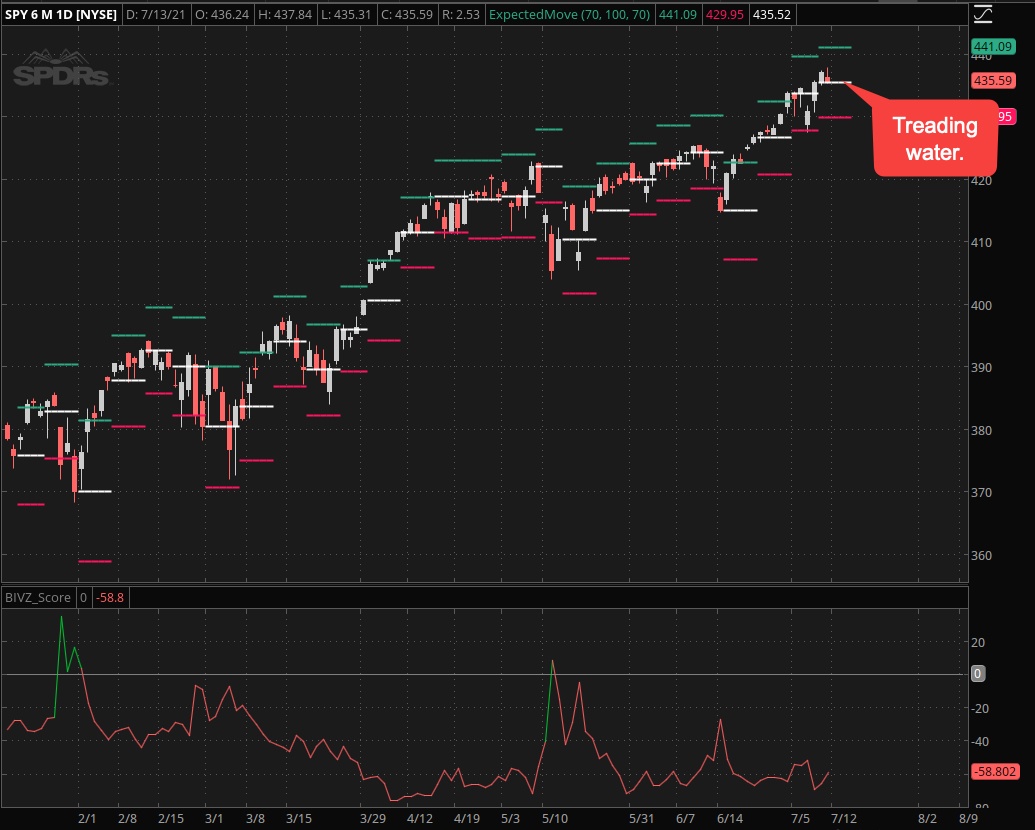
Like a market that keeps running higher on bad news? Yup, that would definitely apply.
Then throw in a low participation summer season and you’ve got yourself a fertile breeding ground for mental masturbation.
By the way this is a topic I covered in much detail in my Trading Psychology Course among many other cognitive biases that prevent traders from getting our of their own way and make money on a consistent basis.
My basic response to a lack of information is to simply do nothing, or when possible to attempt to benefit by selling OTM options or strangles in volatile markets that seem to attract retail traders like the moths to the flame.
But if you pay attention then there are many ways of how to prosper in an information vacuum.
Look at the SPY right now for example – what do you see?
What I see is that it’s been touching one of its expected move thresholds for the past few weeks, which suggests that we are moving into a more volatile period.
On Monday and Tuesday however it did jack all with the SPX/SPY closing near where they opened the week. Which leaves three sessions for it to get its groove on.
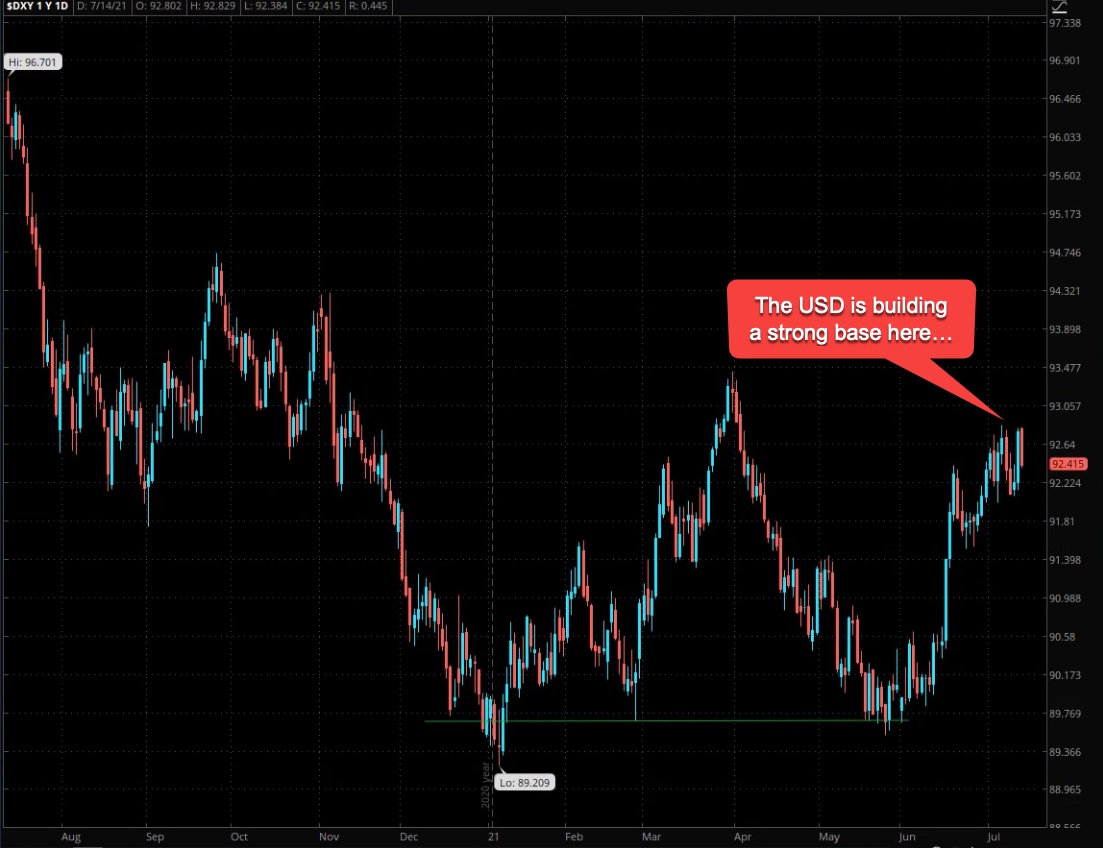
Adding to the confusion is the USD which is pushing higher despite hyperinflation talk galore across the entire financial MSM.
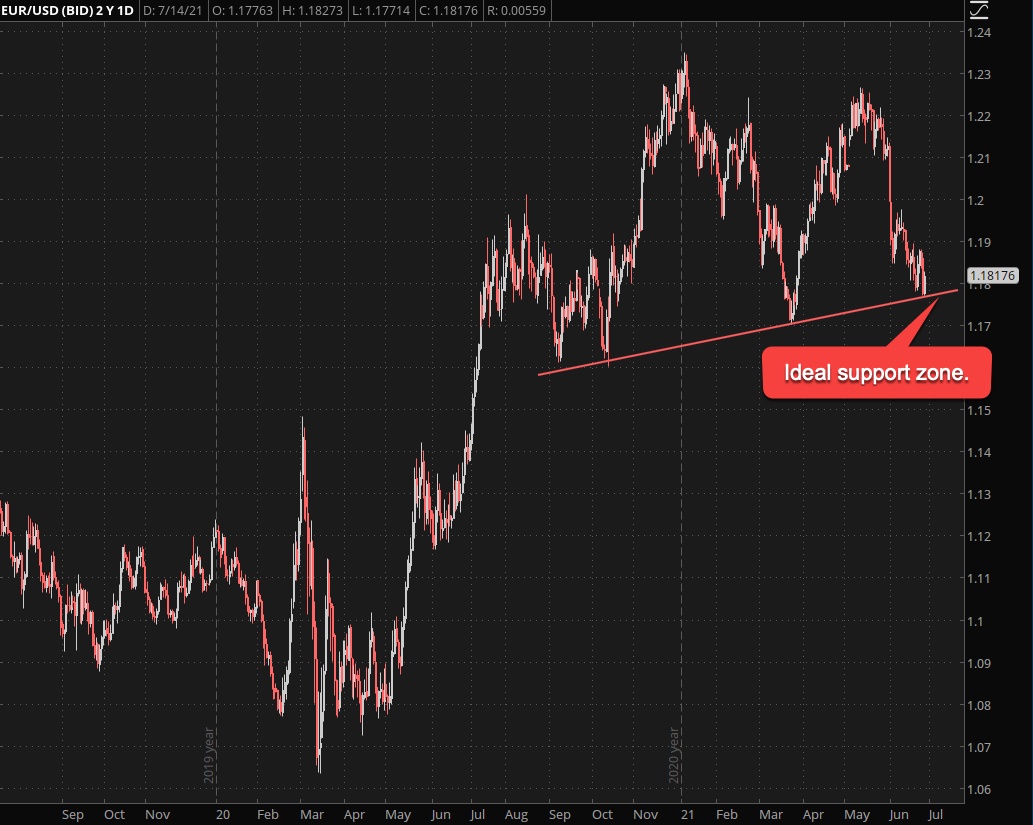
Great support zone on the EUR/USD by the way and I’m a buyer here as much as it pains me as an expat.
But yes, inflation IS a concern as prices across the board are exploding higher, even here in Europe. No matter where you live, if you have been at the pump or at the grocery store lately then you know what I’m talking about.
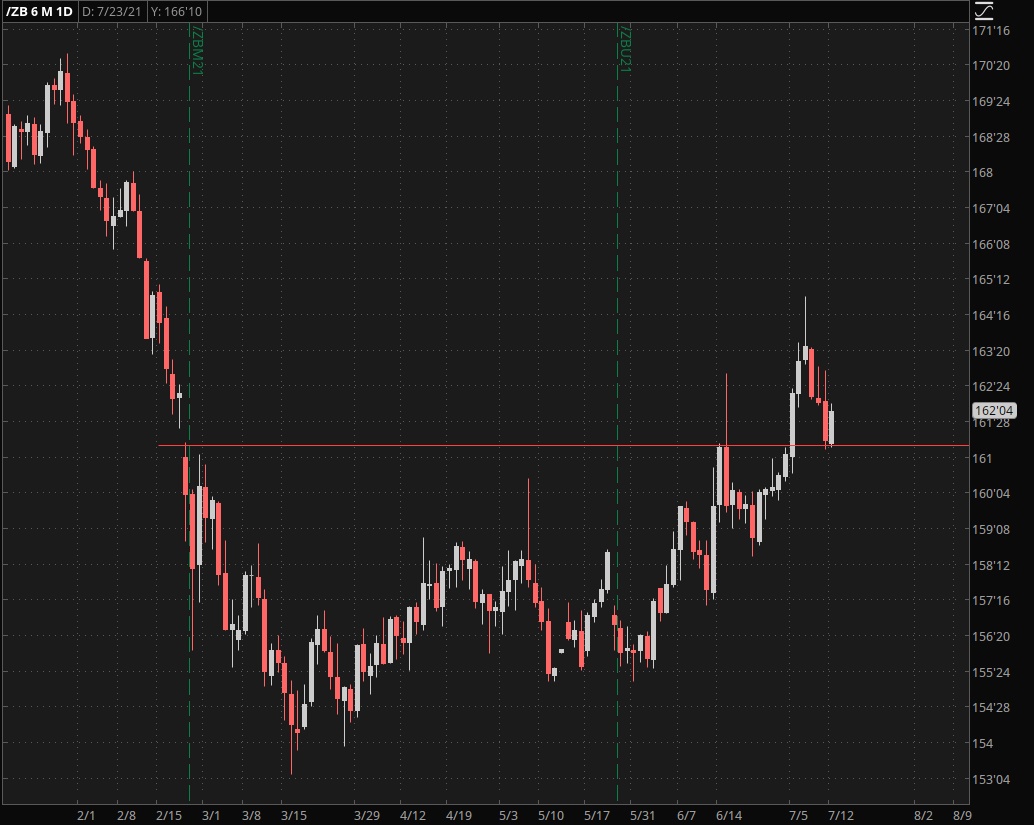
Same with bonds – there has been a pullback but to this old market megalomaniac this looks like an attempt to build a strong base from which to launch a massive short squeeze.
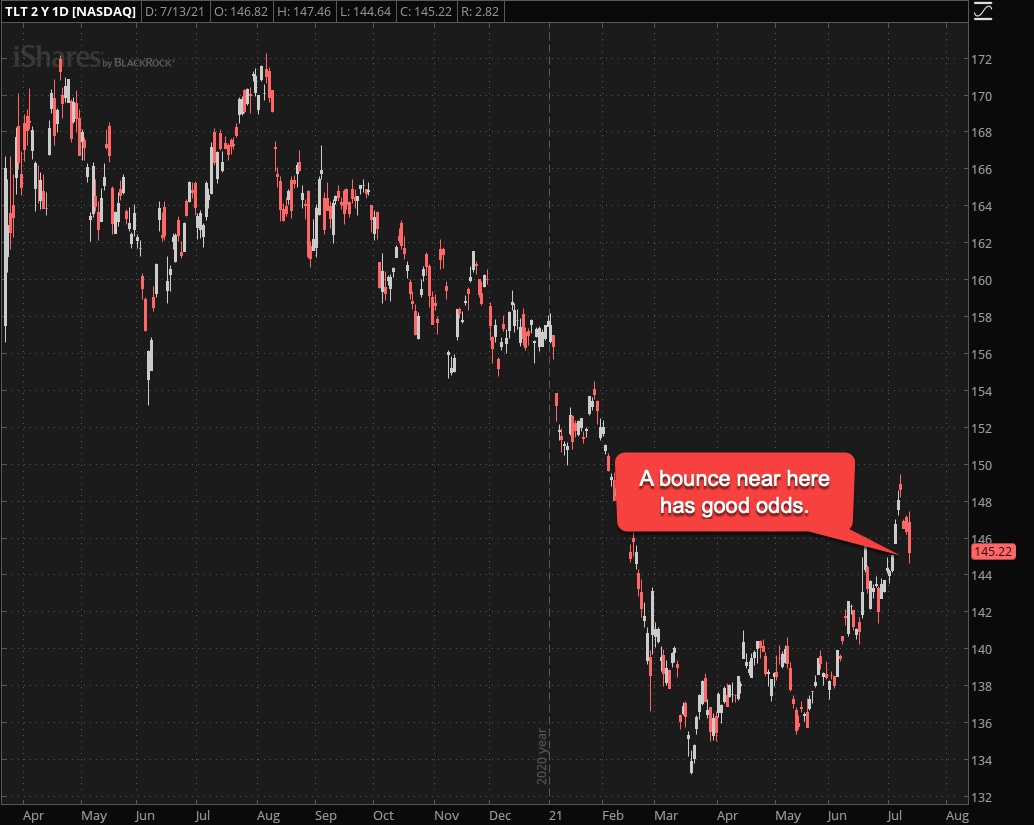
If you want to trade on this then look no further than the TLT, which even has pretty liquid options – rare for treasury related ETFs.
But should any of the above affect our trading decisions? Unless you are trading bonds or the Dollar then no – because these traditional correlations are effectively broken right now.
So how do we take advantage?
Continue reading this post on Evil Speculator…

